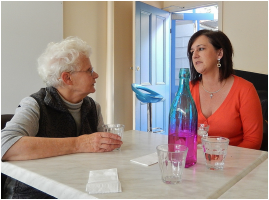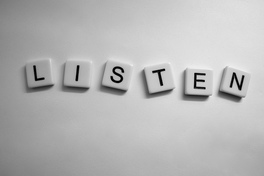
“I don’t know what to say but this must be very hard for you.” Someone said this to me when I was going through a challenging time, and it was exactly the right thing to say. She was showing empathy, acknowledging that even though she had never faced my experience, she understood that it was very difficult.
It’s important to break your silence and acknowledge the loss. Communicate that you are sorry for their loss and, if appropriate, give them a hug, take their hand, or touch their arm. Also important: listening. Listeners are what mourners need most because it’s through telling our story that we begin to make sense of our loss. Listening supportively isn’t always easy, but it’s the best thing you can do for someone coping with the loss of a loved one.
So how can we listen more effectively with friends and family?
- Remember that to listen well, we need to be silent.
- Make time to visit in person or chat on the telephone.
- Open with, “I’ve been thinking of you and wanted to see how you are doing today.”
- Listen intently, facing the speaker and making eye contact. Keep a neutral expression.
- Encourage the conversation by nodding and acknowledging their feelings (“I can understand” or “That must be hard”)
- End the conversation by saying, “Let’s talk again soon.”
The more you listen, the easier it becomes. And someday, you will need others to listen to you too.
Robbie Miller Kaplan is an author who writes from a unique perspective as a mother who has lost two children. She has written How to Say It When You Don't Know What to Say, a guide to help readers communicate effectively when those they care about experience loss, available in ebooks for "Illness & Death," "Suicide," "Miscarriage," "Death of a Child," "Death of a Stillborn or Newborn Baby," "Pet Loss," "Caregiver Responsibilities," "Divorce" and "Job Loss." All titles are in Amazon's Kindle Store.




 RSS Feed
RSS Feed
